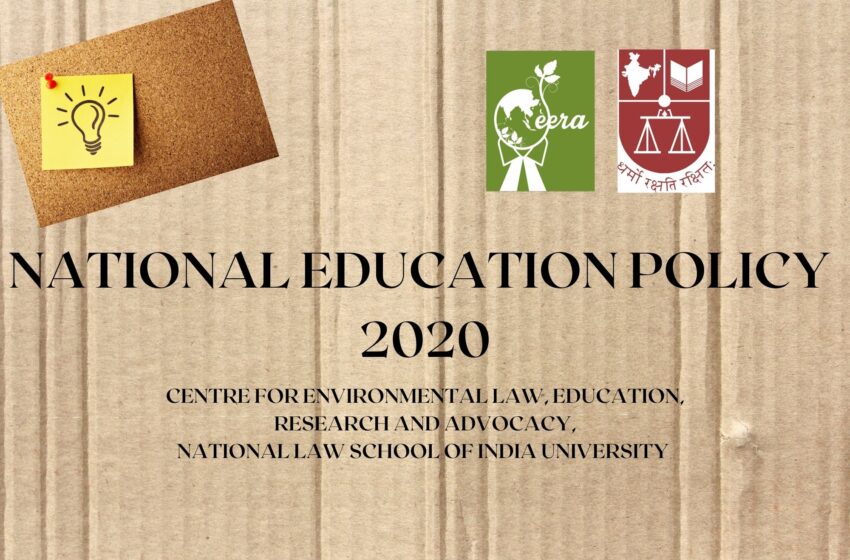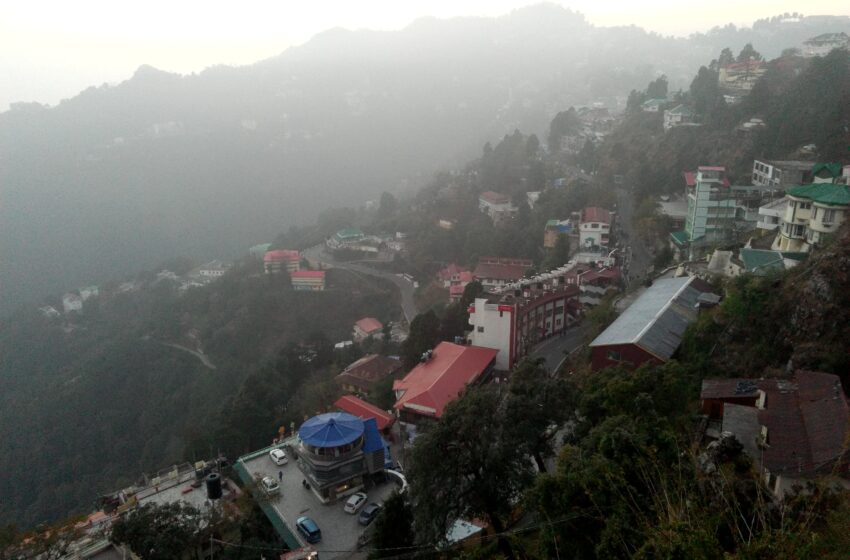JUDICIAL REVIEW OF GOVERNMENT TENDERS Lianne D’Souza, Research Fellow, CEERA, NLSIU Introduction Judicial review of administrative action is a pillar upon which lies a fair, just and impartial government. It is an instrument through which the judiciary may inquire about the legality of administrative action and is a means of creating checks and balances vis-à-vis […]Read More
PREPARING RESEARCH PROPOSALS FOR RESEARCH GRANTS/PROJECTS Ms. Archita Narayanan, Assistant Professor, NLSIU Research Grants or Projects requirements vary from funding institution to institution. Most funding agencies/institutions have a specific set of requirements or research areas/topics that they are looking to extend financial support to. The Research Proposal, its components and the budget need to […]Read More
Illicit Wildlife Trade: Adding fuel to the Pandemic Fire Madhubanti Sadhya, Teaching Associate, CEERA-NLSIU Milind Rajratnam, Intern, CEERA-NLSIU “To prevent future outbreaks, countries need to conserve wild habitats, promote sustainable agriculture, strengthen food safety standards, monitor and regulate food markets, invest in technology to identify risks, and curb the illegal trade in wildlife,” – […]Read More
Legal Education and National Education Policy 2020 Dr. Sairam Bhat[1] and Gayathri Gireesh[2] The National Education Policy 2020, the third to be adopted by the country has come a long way since its first predecessor, the National Policy on Education adopted in 1968[3] by the then Prime Minister Indira Gandhi. It called for the “radical […]Read More
IMPLICATIONS OF NOVATION OF CONTRACTS ON ARBITRATION CLAUSES: A CASE COMMENT ON SANJIV PRAKASH V. SEEMA KUKREJA & ORS.
Implications of Novation of Contracts on Arbitration Clauses: A Case Comment on Sanjiv Prakash v. Seema Kukreja & Ors. Prof. (Dr.) Sairam Bhat, Professor of Law & Coordinator of CEERA, NLSIU Lianne D’Souza, Research Fellow, CEERA, NLSIU Introduction The doctrine of ‘separability’ or ‘severability’ in the law governing arbitration postulates that an arbitration clause is […]Read More
Accessing Biological Resources in Karnataka: Why Should Entites Comply? Sairam Bhat , Raghav Parthasarathy and Rohith Kamath [1] ‘Ignorantia juris non excusat’ is a Latin maxim, which translates to ‘ignorance of law is no excuse’. This maxim is not only an ancient brocard but also imbibes one of the fundamental principles developed in the legal […]Read More
ANALYSING THE JUDICIAL APPROACH TO THE RETROSPECTIVE APPLICATION OF STATUTES: THE SUPREME COURT’S DECISION IN INDORE DEVELOPMENT AUTHORITY V. MANOHARLAL
Analysing the Judicial approach to the retrospective application of statutes: The Supreme Court’s decision in Indore Development Authority v. Manoharlal S.L.P. (C) NOS.9036-9038 OF 2016) decided on 6th March, 2020, 2020 SCC OnLine SC 316 Madhubanti Sadhya, Teaching Associate, CEERA, NLSIU Saumya Singh, B.A. LL.B., 2nd Year NLSIU, Bengaluru This case was adjudicated by a […]Read More
Analysis of Building & Construction Regulations of Hill Towns in India Lianne D’Souza, Research Fellow, CEERA Shivangi Pandia, Intern, CEERA Introduction With the increasing population of India, cities are developing tremendously to meet the increasing demand in buildings for various purposes, viz. recreational, educational, residential and commercial workplaces. The scenario is more critical in the […]Read More
Legislating Climate Change – Is the time ripe to enact a Law? Sairam Bhat and Madhubanti Sadhya [i] India is one amongst the extremely vulnerable countries that continues to face the wrath of climate change. Positioned uniquely with three major water bodies surrounding peninsular India, the subcontinent with a 7,500 km coastline, is not only […]Read More
Environmental Protection- Outside the Realm of Existing Legislative Framework? M.G. KODANDARAM, IRS (Retd.) & Assistant Director – NACEN The idea of the ‘Future of Environmental Litigation in India’ and the title above prima facie appear to be inapt and out of place, but they are not so, for the reasons stated in the following part. […]Read More









